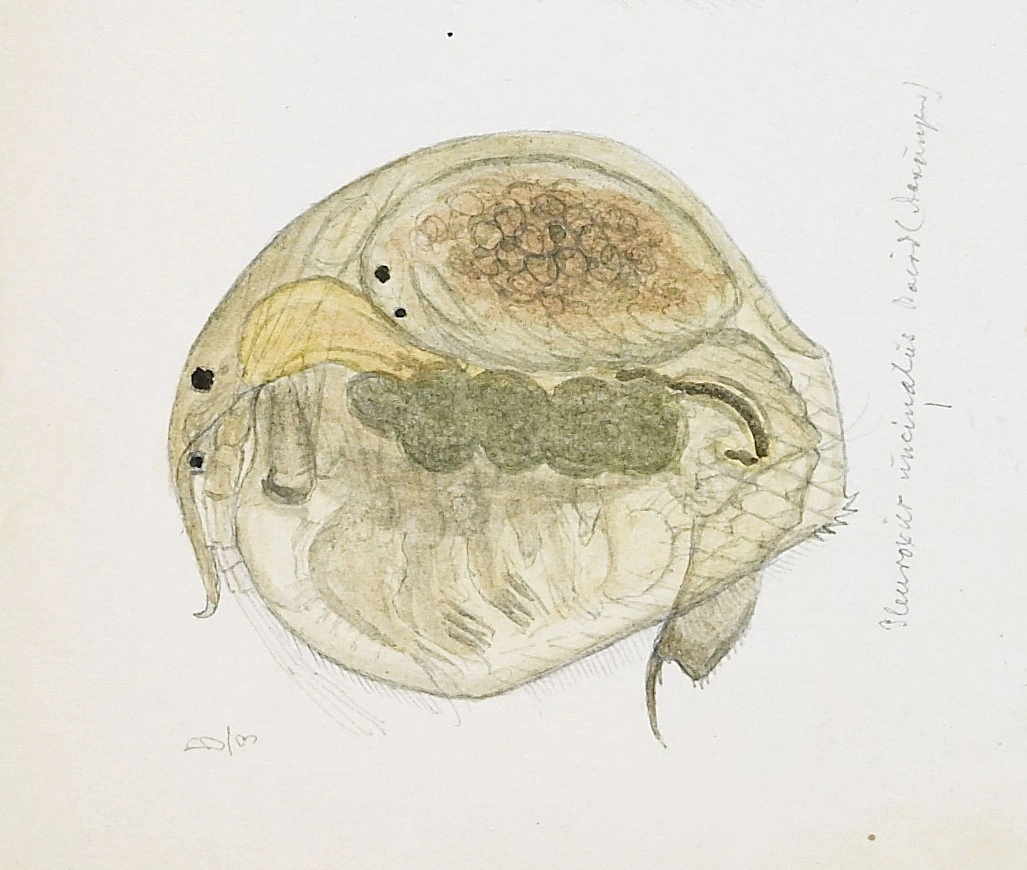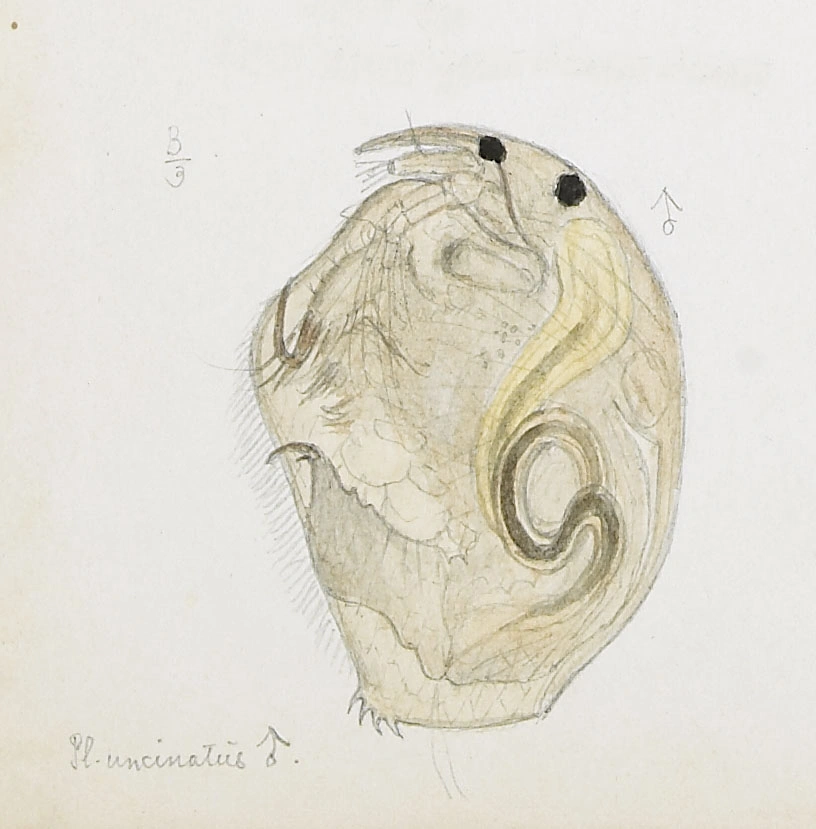Pleuroxus uncinatus
Pleuroxus uncinatus is characterized by the tip of the rostrum, which is upwardly curved. The species is rare and so far only recorded from the central and southeastern parts of the country.
Key characteristics
Pleuroxus uncinatus (female)
Pleuroxus uncinatus (male)
Pleuroxus uncinatus is relative close to P. trigonellus, but can be distinguished from the latter because the tip of the rostrum is upwardly curved, the carapace is reticulated and it has a stronger yellowish colour. Its postabdomen has the same shape and the number of spinules is increasing in size distally, as in P. trigonellus. However the spinules are somewhat thinner and the first spine on the abdominal claw is longer in P. uncinatus. The colour is yellowish green to brownish.
Female: Length 0.5–0.8 mm
Male: Length 0.5–0.6 mm
Ecology and distribution
P. uncinatus is a littoral species found in nine localities situated in the central and southeastern parts of Norway, situated between 9 and 894 m a.s.l. One record is from a small pool (0,0008 ha) while the remaining are from water bodies having a surface area >2 ha. It lives close to the bottom, often on sandy substrate. However, in the delta of the River Etna/Dokka it was found in vegetation (Carex). pH is varying between 5.5 and 7.1 and conductivity from 1.6 to 15 mS/m.
| Vitenskapelig navn | < 4,5 | 4,5 - 4,9 | 5,0 - 5,4 | 5,5 - 5,9 | 6,0 - 6,4 | 6,5 - 7,0 | 7,0 - 7,4 | > 7,5 |
|---|---|---|---|---|---|---|---|---|
| 0 | 0 | 0 | 1,8 | 0 | 1 | 1,1 | 0 |
| Vitenskapelig navn | < 1,0 | 1,0 - 1,4 | 1,5 - 1,9 | 2,0 - 2,9 | 3,0 - 3,9 | 4,0 - 4,9 | 5,0 - 6,9 | 7,0 - 9,9 | > 10,0 |
|---|---|---|---|---|---|---|---|---|---|
| 0 | 0 | 1,6 | 0 | 0 | 0,6 | 1,2 | 0 | 1,3 |
| Vitenskapelig navn | < 0,01 | 0,01 - 0,09 | 0,1 - 0,9 | 1,0 - 9,9 | 10,0 - 99 | 100 - 999 | > 1000 |
|---|---|---|---|---|---|---|---|
| 1 | 0 | 0 | 0,2 | 0,5 | 1,6 | 6,5 |
| Vitenskapelig navn | < 100 | 100-299 | 300-499 | 500-699 | 700-999 | >1000 |
|---|---|---|---|---|---|---|
| 0,7 | 0,9 | 0,3 | 0,3 | 0,6 | 0 |

